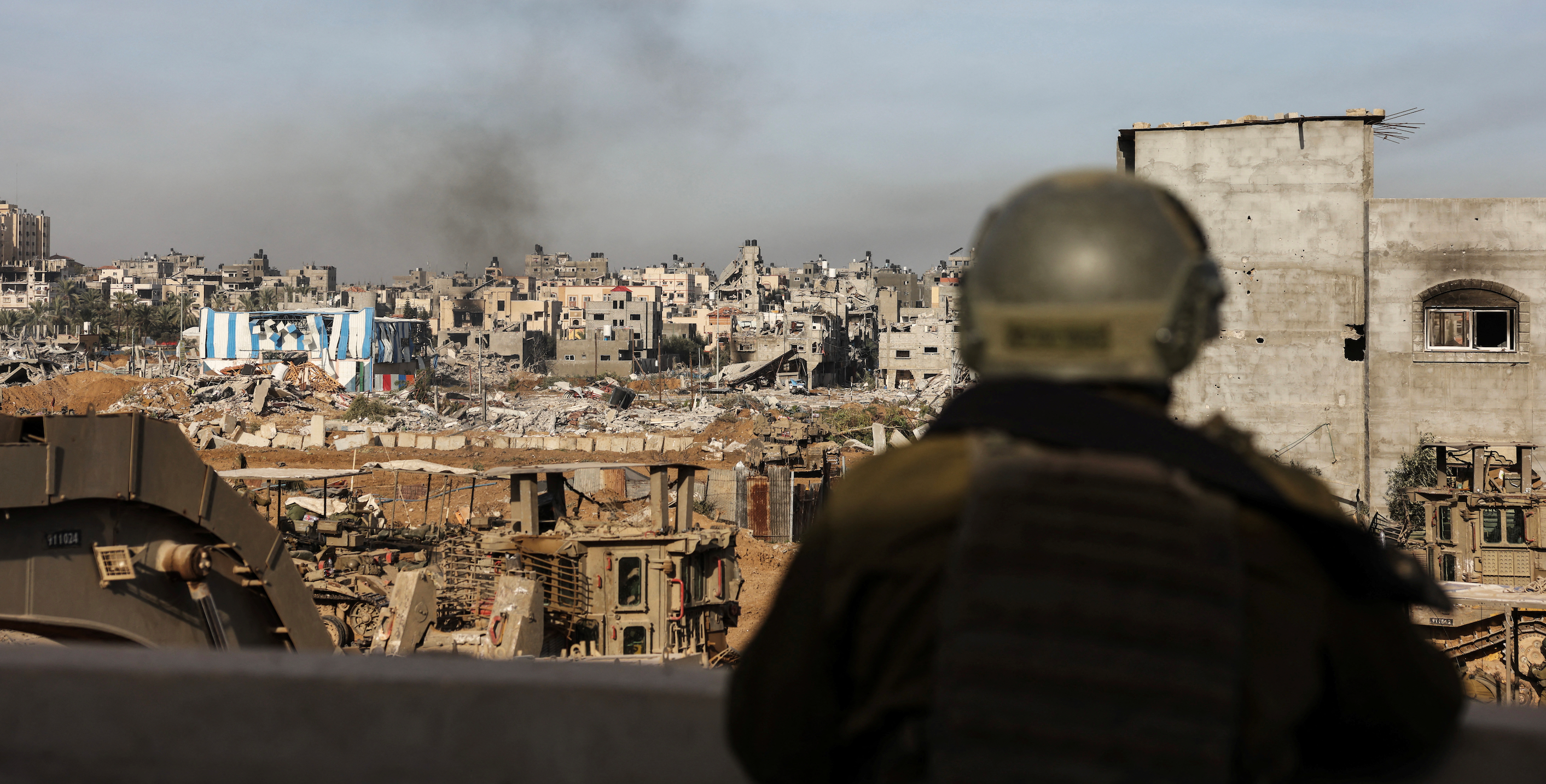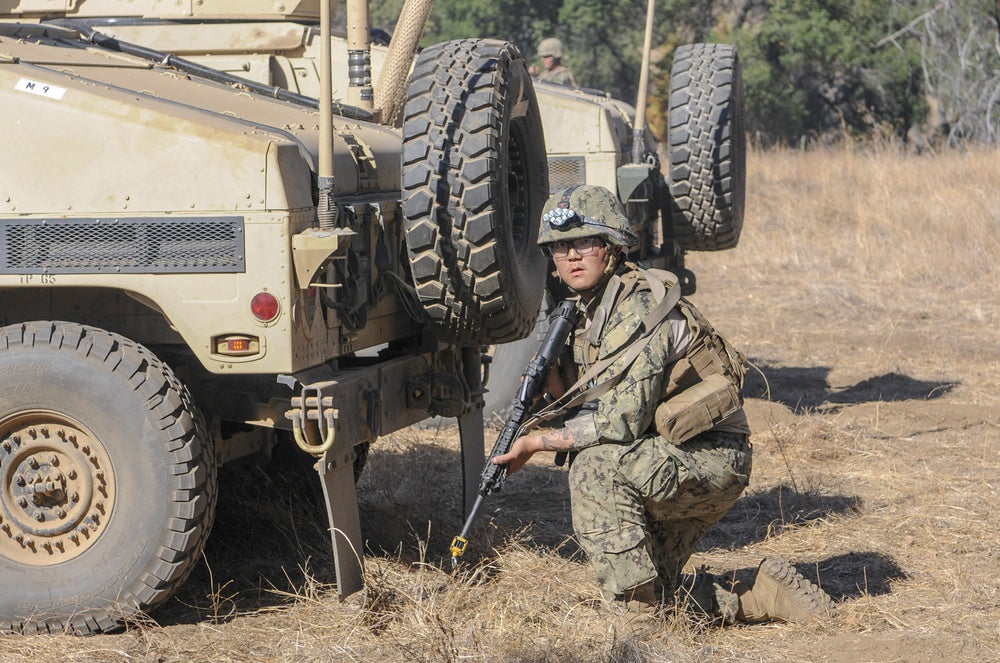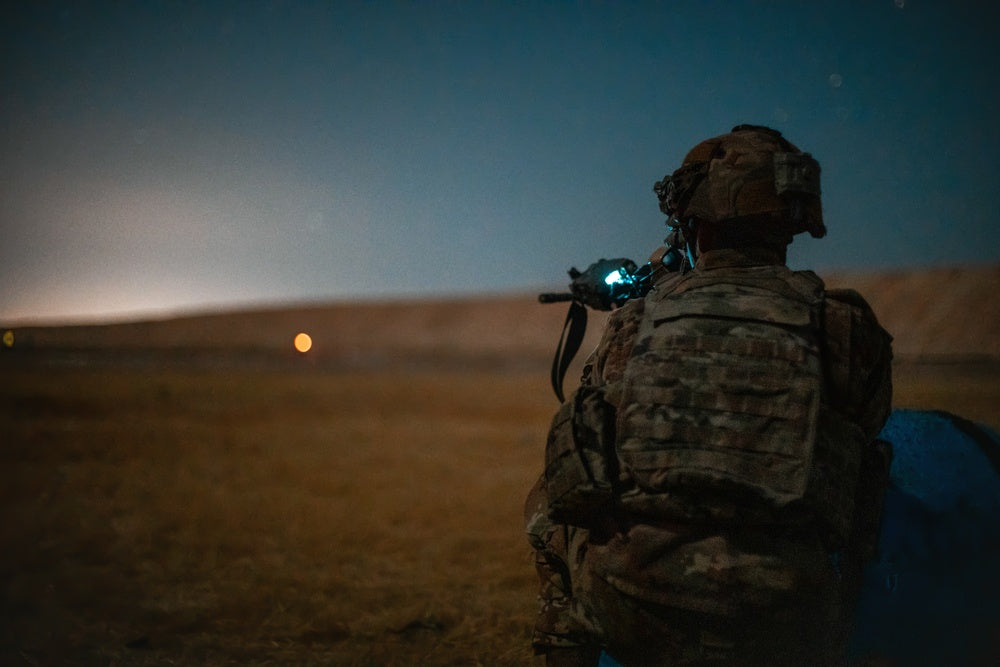
US top diplomat warns of risk of Gaza conflict “metastasizing”
PHOTO CAPTION: An Israeli soldier operates, amid the ongoing conflict between Israel and the Palestinian Islamist group Hamas, in Gaza, January 8, 2024. REUTERS/Ronen Zvulun
By Simon Lewis, Nidal al-Mughrabi and Emily Rose
AMMAN/CAIRO/JERUSALEM (Reuters) -The top U.S. diplomat swept through the Middle East on Sunday, warning that the Gaza conflict could spread across the region without concerted peace efforts, although Israel's leader vowed to continue the war until Hamas was eliminated.
U.S. Secretary of State Antony Blinken, at the start of a five-day trip in the region, also sought to assure Arab leaders that Washington opposes the forcible displacement of Palestinians from Gaza or the occupied West Bank.
"This is a moment of profound tension for the region. This is a conflict that could easily metastasize, causing even more insecurity and suffering," Blinken said at a press conference in Doha. He was in Jordan and Qatar on Sunday before landing in the United Arab Emirates for talks on Monday. He will then visit Saudi Arabia, Israel, the West Bank and Egypt.
Jordan's King Abdullah urged Blinken to use Washington's influence over Israel to press it for an immediate ceasefire, a palace statement said, warning of the "catastrophic repercussions" of Israel's continued military campaign.
Despite global concern over the death and destruction in Gaza and widespread calls for a ceasefire, Israeli public opinion remains firmly behind the operation aimed at wiping out the Hamas group that rules Gaza, although support for Prime Minister Benjamin Netanyahu has fallen sharply.
Netanyahu has vowed to press on with the retaliatory action.
"The war must not be stopped until we achieve all the goals - the elimination of Hamas, the return of all our hostages and ensuring that Gaza will no longer pose a threat to Israel," Netanyahu said at the start of a weekly cabinet meeting on Sunday. "I say this to both our enemies and our friends."
Some 1,200 people were killed and 240 were taken hostage in Hamas' cross-border attack on Oct. 7, according to Israeli officials. More than 100 hostages are still believed to be held by Hamas.
For Israelis, the deadliest day in the country's history and the accounts of atrocities that later emerged left a sense that its survival is at stake.
Israel's offensive has so far killed 22,835 Palestinians in Gaza, after 111 dead and 250 wounded were added to the tally over the past 24 hours, Palestinian health officials said on Sunday.
An Israeli air strike on a car near Rafah in southern Gaza on Sunday killed two Palestinian journalists, according to health officials in Gaza and the journalists' union there.
Central Gaza has been the focus of a heavier Israeli ground and air offensive in the past two weeks, with residents there reporting tank shelling east of the area as explosions lit the skies overnight on Sunday. Palestinians in southern Gaza Strip said Israeli air strikes pummelled the area east of Khan Younis and Rafah.
Israel denies targeting civilians and says Hamas militants deliberately embed themselves among civilian populations. Hamas, which is backed by Iran and is sworn to Israel's destruction, denies that.
The fighting has displaced most of Gaza's 2.3 million population, with many homes and civilian infrastructure left in ruins amid acute shortages of food, water and medicine.
"We hope that ... Blinken looks at us with an eye of mercy, ends the war, ends the misery we are living in," Um Mohamad Al-Arqan said, as she stood by the tent where she is living.
REJECTING FORCIBLE DISPLACEMENT
Following meetings with King Abdullah in Amman and with Qatari Emir Sheikh Tamim bin Hamad al-Thani and Prime Minister Mohammed bin Abdulrahman al-Thani, Blinken said the United States rejected any forcible displacement of Palestinians from the West Bank and Gaza.
"Palestinian civilians must be able to return home as soon as conditions allow," Blinken said in Doha.
Blinken and Qatari officials also discussed efforts to free hostages still believed to be held by Hamas after an earlier agreement mediated by Qatar broke down, something that the Qatari prime minister said was affected by the recent killing of a top Hamas leader.
Blinken also aimed to press hesitant Muslim nations in the Middle East to prepare to play a role in the reconstruction, governance and security of Gaza if and when Israel manages to eliminate Hamas, a State Department official said earlier.
"Our partners are willing to have these difficult conversations and to make hard decisions," Blinken told reporters, adding that he plans to press Israeli leaders to do more to prevent civilian casualties and allow in more humanitarian aid.
Gun battles intensified in the southern Gaza town of Khan Younis as well as in central districts of the densely populated enclave. Israeli strikes on houses in the city killed 50 people, health officials in Nasser Hospital said on Sunday.
Outside Gaza, there was more violence in the occupied West Bank. Israeli aircraft fired on Palestinian militants who had attacked troops in the area, the military said, and Palestinian health officials said seven Palestinians died in the strike.
An Israeli border police officer was killed and others wounded when their vehicle was hit by an explosive device during operations in the West Bank city of Jenin, the military and police said.
Israeli police killed a young Palestinian girl in a car at a West Bank crossing when they opened fire on another car suspected of a ramming attack, Israeli emergency services said.
Hundreds of Palestinians have been killed in clashes with Israeli soldiers and settlers over the past weeks.
(Additional reporting by Nidal al-Mughrabi and Hatem Maher in Cairo, Ali Sawafta and James MackenzieWriting by Michael Georgy, Tomasz Janowski, Hugh Lawson and Susan HeaveyEditing by Frances Kerry and Leslie Adler)









